Staff Training: The Key to Success
In the perfect world of garden center retailing, fully-trained, self-motivated staff arrive on our doorsteps itching to punch in and eager to assist customers.
Of course, only a few delusional garden center owners still cling to this fantasy, much like the lottery buyer who knows that his ticket is going to win the $10,000,000 drawing — statistically possible, but not remotely probable.
So while hope springs eternal, in the meantime, the best bet is to hire the best people and then train them — really train them.
At Hole’s Greenhouses, we’ve embraced the training philosophy not only because we like to have well-trained staff, but also because, as an independent, we need to have well-trained staff to compete. In an environment rampant with mega box stores, high-quality product and knowledgeable staff give us the competitive edge. Yet the task of training all of our staff is daunting at times.
Staff orientation
At our sales peak in the spring, we employ about 170 full- and part-time employees, all of whom require specific training geared to their area. We are different from many garden center businesses in that we are both growers and retailers. In other words, we grow a large portion of our bedding plants, perennials and potted plants, and Á we retail them at the same site. This gives us an advantage in having tight control over the plants that we retail. Physically, the combined retail/growing area is about 3 acres with all of the plants and hard goods sold exclusively at our one retail site.
The level of experience and education of people working at Hole’s is high. Of the 170 or so staff members, some are full-time employees but a great many are seasonal employees fresh out of college or high school. Some have no retail training, others have worked in retail for years. Some are avid gardeners, some don’t even grow houseplants.
So just how do we begin to train all of these people in a short period of time? We start with a staff orientation day that all staff, veteran and novice alike, must attend. At this time, the company’s philosophy regarding quality and service is explained and emphasized. The staff then break off into their respective areas — bedding plants, perennials, trees and shrubs, garden center (hard goods), indoor plants or the administration office. Each staff member watches a short presentation on the computer, an orientation that gives new employees further insight into the history of Hole’s, our business practices and philosophy, and the more mundane matters, such as how to use the time clock and when to take coffee breaks. Each area manager then once again explains Hole’s philosophy and helps new employees become familiar with their specific work area and responsibilities.
The test and the task
The prospective employees who aren’t intimidated by all the information presented in orientation usually tremble a bit when the concept of area exams is brought up. Successful completion of area exams is the culmination of several previous weeks of on-the-floor training, product and service training, and studied handouts, and are mandatory for all retail staff. It’s not uncommon to lose one or two prospective employees right on orientation day; sometimes they feel overwhelmed by the challenge of all this training and the prospect of exams. But most employees, after a few moments of anxiety, embrace the idea. One of the greatest criticisms by employees of their employers is that they receive too little, not too much training. In the garden center particularly, lack of product knowledge frustrates staff and customers alike — often driving both out of the store. We’ve recognized this and have tried hard to train to ensure a win/win situation for both employee and customer.
There is a wage incentive upon successful completion of exams. A 50 cent per hour raise is given to employees who pass the area exams (80 percent) with the opportunity to re-take exams for those who fail. Some employees are allowed to complete other area exams for a further 25 cent per hour raise if they are working in more than one area.
Ongoing training is mostly in the form of regular meetings. Thursday is always general meeting day, when the entire staff gets together to voice concerns, get updates on company issues and receive further training. During the peak season, morning area meetings are held daily to again address staff and customer problems, give updates and to provide further training. The tree and shrub staff would meet in their area, indoor plant people in their area, and so on.
Specialization equals strength
One area that we’ve endeavored to substantially improve is with phone-in customers. Customer phone inquiries have long been the bane of our garden center, particularly at the peak of the season. The problem is not that the phone-in customers aren’t welcome, rather it’s the fact that volume can be astronomical in the spring and the retail floor staff have an exceedingly difficult time dividing their attention between in-house and on-phone customers.
At the peak of the season, it’s not uncommon for us to receive 500 phone calls per day. To alleviate the stress on the staff and all our customers, we decided to establish a call center. At peak, our call center comprises six staff members who answer all incoming calls, take gardeners’ questions and write up customer orders.
These specialized staff members undergo some of the most intense horticultural and customer service training. As a result, customer satisfaction has improved both on the floor and on the phone, and sales per phone call have risen dramatically. The phones no longer ring incessantly in the garden center since the call center has its own office to deal with the calls.
Hole’s publishing department also plays a large role in staff training. It is comprised of three full-time employees — a managing editor, a graphic artist and a writer. They are primarily responsible for the publication of our gardening books (10 titles in total to date, with our perennial book emerging recently as the top-selling gardening book in Canada) and an annual gardening magazine. This department also works in conjunction with the other areas to produce professional-quality signs and print media advertising. It also provides assistance in training staff by creating informative instruction booklets, setting up and maintaining our comprehensive plant database, and fine-tuning the orientation video. Not only are the books popular with gardeners, but they are also an excellent training tool for the staff.
One of the greatest benefits of staff training that is often forgotten is that trained staff tend to stay with the company much longer. We’ve found that students come back year after year for seasonal work because they enjoy the work. The comment that we’ve heard time and again from our employees is that the training gave them the power of knowledge and therefore the ability to deal with customers on a more equitable level. Training is not the miracle cure for dissatisfied employees, but it is certainly a major step in keeping them happy and productive.
Top-notch employees are made, not born. It takes a lot of careful effort to hone an eager new face into a long-time staff member who keeps the business running smoothly, but the results are well worth the time and money spent.

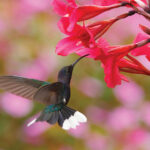



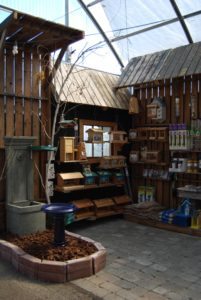
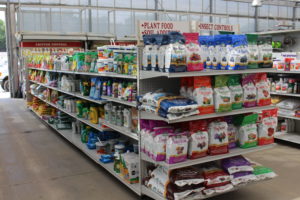
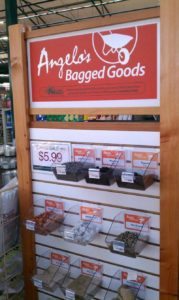
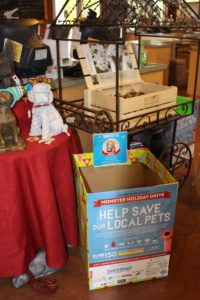
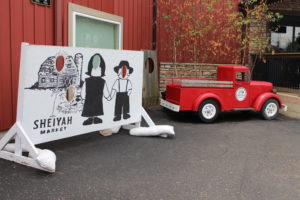
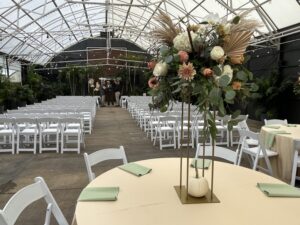
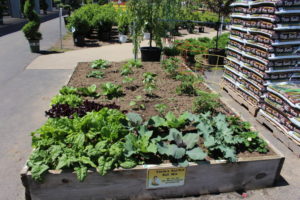

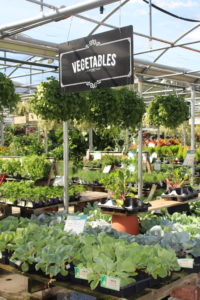
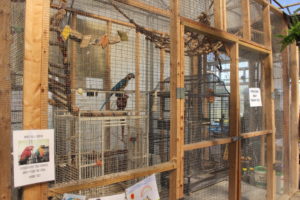
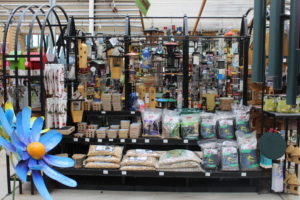
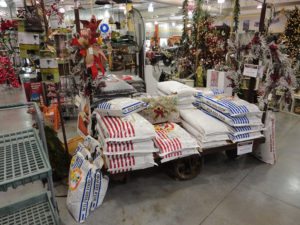
 Videos
Videos





